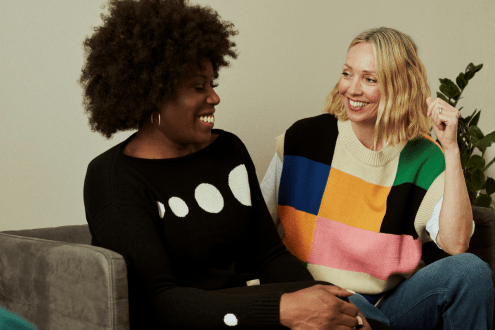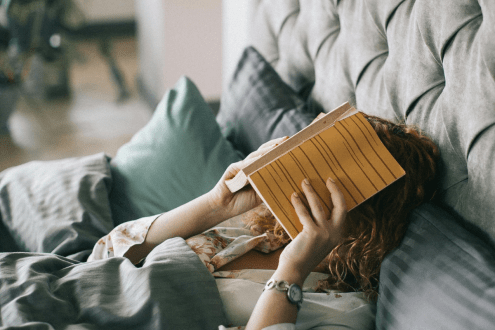How to collect memories
So much more than ‘dust-gatherers’, ‘trinkets’ or ‘tat’, a carefully curated collection of personal treasures can become a legacy of a life well lived, discovers Emily-Ann Elliott.

So much more than ‘dust-gatherers’, ‘trinkets’ or ‘tat’, a carefully curated collection of personal treasures can become a legacy of a life well lived, discovers Emily-Ann Elliott.
On the first day of our summer holiday, my family will no doubt begin our search for the one memento we always bring home from a trip: a fridge magnet bearing the flag of the country we are visiting.
The tradition started off as a joke years ago when my husband and I first moved in together. He came home from a business trip to the US proudly clutching the Stars and Stripes. A tiny gift for me, something to say ‘I was thinking about you’.
Later we thought it would be fun to buy one on our first holiday together to Spain. Then we picked one up on our honeymoon to Japan, and suddenly it became a custom of sorts.
The magnet must be very specific. A flag, of course, but with no text and no additional pictures or mascots from the country. Often it becomes our mission of the holiday, running in and out of various souvenir shops, proffering up magnets until someone triumphantly proclaims: ‘That’s it, that’s the one!’
This ‘thrill of the chase’ is a common phenomenon, according to Prof Shirley Mueller, author of Inside the Head of a Collector, Neuropsychological Forces at Play. ‘What stimulates the brain even more than the piece itself, is the anticipation of getting the piece for our collection,’ she explains.
Since having our children, our holiday magnet ritual has become a family affair. The official job of placing the newest one on the fridge has now been bestowed upon my four-year-old daughter.
It sounds silly, but over the years our collection has become a snapshot of our lives. Every time I open the fridge to get some milk or put the margarine away, I’m reminded of holidays gone by and some of the happiest days of our lives.
Even in the midst of the day to day work of family life, they’re our reminder of those special moments. To everyone else, they may just be slightly tacky souvenirs, but to us they are magnetic memories.
This autobiographical quality to our collections is one of the reasons they become so special to us. The human story behind objects makes us appreciate them more and adds to how we value them.
As Prof Mueller explains: ‘No matter how lowly the object that a collector collects, it is just as important to him or her as someone who, for example, collects high end art.
‘In fact, it is often even more important. Some people who collect high end art don’t even keep it. They’ll put it into storage, hoping to gain a profit in five or ten years. But that’s not the collector that interests me. The collector who interests me has a passion and loves what they collect.’
Our collections often also bring us comfort, as our brains return to the moments when we found, bought or were given pieces for them. ‘Very often we might collect something that we can link to a particular event or place we visited,’ says Dr Elena Touroni, a consultant psychologist and co-founder of The Chelsea Psychology Clinic. ‘There is something about tangible objects and their ability to link to a positive memory we’ve had in the past that we’d like to treasure.’
Sue Bordley, author of Rescue Me, understands this autobiographical quality of a collection. Now aged 50, she has been collecting Caithness paperweights for almost 30 years. ‘I’d always thought they were beautiful, mystical objects, just like crystal balls,’ she says. ‘I was particularly fascinated by their names and that each one was unique. So when I was asked by an aunt what I wanted as a 21st birthday present, I had no hesitation and I received the first one in my collection.
‘I add to my collection to celebrate major life events. There’s the one I got for my graduation, one in my wedding colours, one for each of our sons and one I bought myself to mark the start of my career as an author.
‘I have them on display on top of a 1930s art deco cabinet and they’re my pride and joy. I’ve even mentioned them in one of my books.’
This joy of collecting can emerge at a young age. Who hasn’t observed a small child gleefully gathering together their most treasured possessions and rearranging them for hours?
Prof Mueller says: ‘We know that 30 to 40% of adults collect things. However, one study showed us that as high as 80% of children collect. Like adults, children want to possess the things they find interesting. Plus, curiosity enhances learning and we can learn so much from our collections.
‘Some people collect beautiful objects and display them, but whether they are beautiful or not, they can be organised. They can be put on a shelf and any interested person can be shown them and their background can be talked about.’
This conversation reminds me of a second collection I own. As Christmas approaches, another family tradition begins in our house. Years ago as our first Christmas together approached, my husband and I realised we had a measly collection of tree decorations between us. Rather than rush out and buy lots of new ones all at once, I suggested we pick just one to represent our first Christmas together.
Since then we have bought one new decoration a year, each representing a significant event that has happened. Ten years later when we open the decoration box, we spend time talking over the memories connected with each piece. One for the first home we bought together, one for the year we got married and, of course, one each for the births of our children. Now our tree is no longer just covered in pretty decorations, it has become the story of our lives together.
Sue agrees: ‘I think in my case, the paperweights represent stages of my life, so they give me a sense of accomplishment and pride in the things I’ve done. Whenever I get myself a new one, sometimes it’s the reward for a period of hard work, or for things like my wedding or 50th birthday, they’re a visual reminder of how far I’ve come.’
As the world seems to become more unpredictable by the day, I’ve also been thinking a lot about the solace having a special collection of things can bring. There’s something soothing about rearranging and organising our collections.
Prof Mueller explains that this is a very normal response, particularly in uncertain times. ‘People can control their collection,’ she says. ‘What can you control in your life? Hardly anything. But you can control your collection. You can control which shelf it goes on, how you organise it, who you show it to, who you talk with about it and what you buy and what you get rid of.’
Dr Touroni agrees: ‘Objects can provide a sort of bridge to a particular memory. Their significance can help us hold something positive, or meaningful, in mind and this can be very comforting, especially in uncertain times.’
So if you’ve ever felt a little embarrassed by your collection or you’ve always wanted to start one, now is the time to start collecting joyfully. Enjoy hunting for those special items, embrace the eBay bidding war. Because to other people our collections may seem insignificant. A set of teapots, framed prints by our favourite artist, anything and everything bearing a picture of a fox.
But to those of us with a collection, they have meaning. They’re the memories of days gone by. They’re the presents that loved ones have pressed into our hands with the words ‘I saw this and thought of you’. Maybe even one day, when we’re gone, they may be how our own family members remember us.
How to collect what your passionate about
Think about what makes you feel passionate and excited and base your collection around that. Starting a collection doesn’t have to be expensive. Search on Facebook Marketplace, in charity shops and at car boot sales for undiscovered treasures. Decide how you’d like to display your collection.
Whether it’s in a curio cabinet or a special album, giving your collection a dedicated space will make it enjoyable to look through and organise. Find a community with the same interest as you. There are so many online groups for collectors and lots of in-person meet-ups too. Spending time with people who are interested in collecting the same things as you provide an instant connection.
Ask your friends and family to tell you about their collections. It’s so interesting to hear the memories that people have connected to their collections. Plus having the opportunity to speak passionately about something we care about is good for the soul.








